Theresa Chang: A career learning lessons
Updated: 2015-03-27 11:38
By May Zhou in Houston(China Daily USA)
|
||||||||
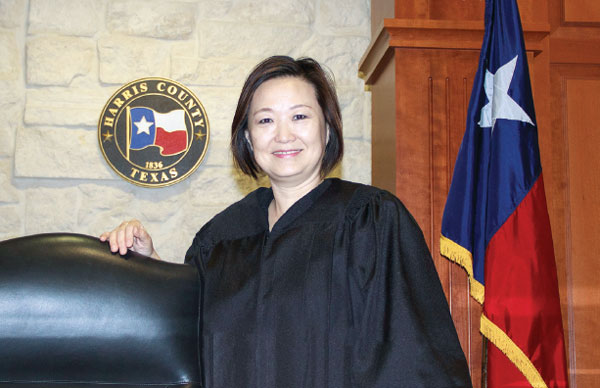 |
|
Judge Theresa Chang in her courtroom at the Harris County Civil Court No 2 in Houston. May Zhou / China Daily |
Judge Theresa Chang got where she is by learning lessons along the way.
Chang came to the United States in 1979 from Taiwan for graduate school at Texas A&M University in Kingsville. She moved to Houston and got a job as an engineer in a pipeline company in 1981.
"I worked as an engineer for 10 years, felt quite comfortable with it," she said.
Then, something happened that piqued Chang's interest in law.
"In the early 1990s, there came out the Clean Air Act, which fundamentally affected how we conducted our business," she said. "As a project manager, I found myself unable to understand the meaning of the law. Our counselor would explain to me the regulation and how it affected our practice, but I could not make any judgment on what was said to me."
Determined to make herself more valuable to the company, Chang decided to pursue a degree in law while still working as an engineer. She had her doubts; the job was demanding, and she had a young son. However, her husband Dr Peter Chang, a cardiologist, encouraged her to pursue her dreams.
Chang began taking classes at the South Texas College of Law in 1992.

"I could not have done it without my mother's helping me to take care of my son," she recalled. "I worked during the day, went to classes in the evening, and did my homework and study over the weekend, sometimes by the playground where my son played."
While holding a job, studying law and raising a son, Chang also became involved in civic organizations. She served as national vice president of the Organization of Chinese Americans, as a board member of the Houston Area Urban League, and on the Harris County Private Industry Council.
The law degree took Chang five years to finish. "The biggest challenge was not how hard the study was, but how limited my time was for me to do all I wanted," she said.
"I am a people person, and I derive the greatest satisfaction when I see what I do can benefit others," she said.
When Chang got her JD degree in 1996, she decided to give herself two years to try her hand at law. She asked her 10-year-old son to help her to decide what to do: stay at home and go into private practice with a busy schedule, or take a government position with a relatively less intense schedule.
Her son chose the latter, and Chang joined the Harris County Attorney's Office in 1997. She worked there for 10 years, and was eventually promoted to division chief.
In 2007, the Harris County district clerk position became vacant between elections. With encouragement from her husband, friends and the county attorney, Chang decided to give the position a try. She applied and won unanimous approval from all 59 District Court judges.
"I was very honest with them," Chang said. "I told each judge that it's impossible for me to please everyone every time, but I will do my best to meet their needs, and I will let them know if I can't. Maybe my candor won them over."
In 2008, Chang lost the position in an election. She returned to work as an associate judge in the Houston Municipal Court from 2009 to 2012.
"There are piles of cases, and I learned how to speedily deal with them," she said. "Later, when I became an elected judge, I was able to apply that and reduce the docket by 40% during my first term."
Then another opportunity came her way: In early 2012, a judgeship on Harris County Civil Court No. 2 became vacant before an election. Chang applied and was appointed to fill it by the Commissioners Court.
In that same year, Chang had to stand for election. Using lessons learned from her previous failed campaign, Chang was well prepared and won the election. She became the presiding judge of Harris County Civil Court No. 2 in 2012, and was re-elected in 2014.
"I think it's all about connecting the dots," she said. "All experiences in our life are useful: My engineering experience helped me in my logic thinking in law; my civic involvement helped me to build a network to run for public office; my first failed campaign helped me to win the second election; my clerk and associate judge experience helped me to handle cases more efficiently. If we know how to connect all the dots in our life, we can achieve what we want."
Chang often lectures on the US legal system and appears on local Chinese radio and TV.
"A lot of first-generation immigrants do not understand the law," she said. "They are often ignorant of their rights as well as obligations. I want to share my knowledge with them to help them to be better adapted here."
Chang admitted that as one of the local Asian community's early leaders, she's conscious of the image she projects: "I sometimes found myself the only Asian in certain organizations; I could not help but think that how I act impacts what others think of Asians, so I try my best."
Over the years, Chang has been involved in more than 20 civic and professional organizations and holds titles in a half dozen.
In 1997, then-Governor George W. Bush appointed Chang to serve on the Board of Regents of the University of Houston, the first person of Asian descent to held the position.
Chang was named to Women on the Move in 2005; as one of the 50 Most Influential Women in Houston in 2010; and received a distinguished alumni award from Texas A&M in 2011.
Once, a Caucasian lawyer who adopted a girl from China approached Chang and asked: "When my daughter grows older, may I bring her to your court and let her see that there is a Chinese-American judge?"
Of course, Chang told her. "And I offer this opportunity to anyone who wants to come to my court and have a look."
mayzhou@chinadailyusa.com
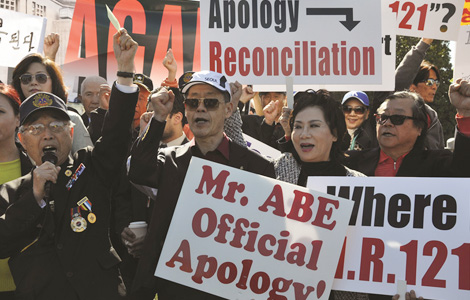
 Across America over the week (from April 24 to 30)
Across America over the week (from April 24 to 30)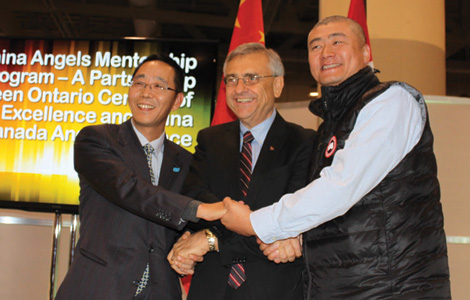
 Across Canada (May 1)
Across Canada (May 1)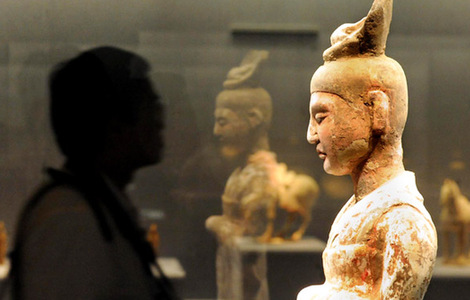
 China's top 10 GDP provinces in Q1
China's top 10 GDP provinces in Q1
 Photos capture marvelous landscapes of China
Photos capture marvelous landscapes of China
 Mass exodus from Kathmandu
Mass exodus from Kathmandu
 Running on water: a nearly impossible feat
Running on water: a nearly impossible feat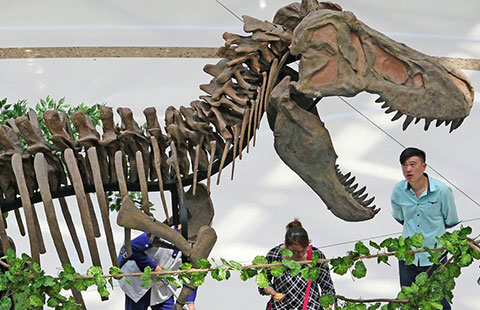
 Ten photos you don't wanna miss - April 30
Ten photos you don't wanna miss - April 30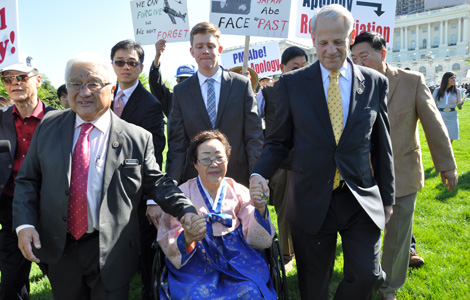
 'Comfort women' survivor attends protest of Japan PM
'Comfort women' survivor attends protest of Japan PM
Most Viewed
Editor's Picks

|

|

|

|

|

|
Today's Top News
The 'nightmare' everyone saw coming
Abe betrays history's conscience
Vancouver property developer identified as Chinese fugitive: report
Freddie Gray tried to hurt himself in police van
China trainmakers seek control of Bombardier's rail unit
New rich set sights on tech, media and telecom sectors
US rapped for stance on Japan
Obama, Abe talk much about China
US Weekly

|

|







